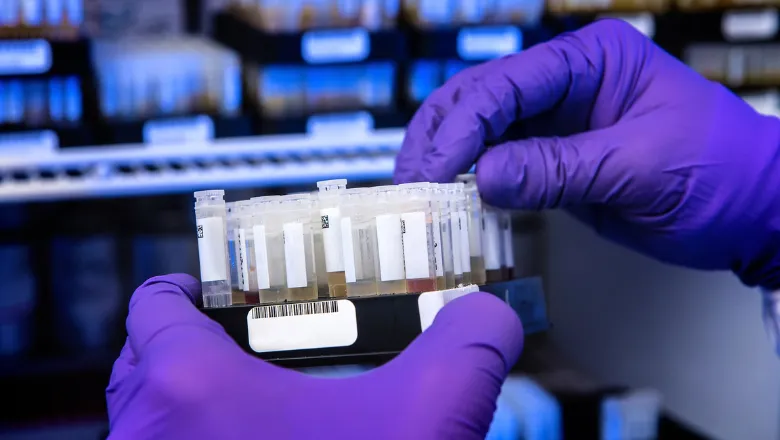The first ever clinical trial of a new class of immunotherapy for cancer has shown promising results that could benefit patients who do not respond to existing cancer treatments.

The study, published in Nature Communications by researchers from King's and Guy's and St Thomas' NHS Foundation Trust, and funded by Cancer Research UK, tested whether a type of antibody called IgE could be used to treat human cancer.
Immunotherapy works by stimulating the body's own natural defence system to attack cancer. All existing antibody drugs used in cancer belong to an antibody type called IgG, but IgE antibodies have not been tested in humans before. IgG antibodies are involved in attacking bacteria and viruses in the body, but IgE antibodies evolved to target parasites like worms and flukes.
Results from the Phase I trial show the drug MOv18 IgE shrank the tumour of a patient with ovarian cancer who had not responded to conventional therapy. Importantly, results also showed treatment with MOv18 IgE was well tolerated in almost all patients.
Lead author on the study, Professor James Spicer, Professor of Experimental Cancer Medicine at King's and Consultant in Medical Oncology at Guy's and St Thomas' NHS Foundation Trust (GSTT), said:
"IgE is a completely new form of antibody therapy which has shown great promise in this Phase I trial. Our findings show that the drug was well tolerated in patients and shrunk a cancerous tumour in a patient with ovarian cancer. The results pave the way to development of an entirely new class of anti-cancer drug for people with chemotherapy-resistant cancers. The immunology expertise in King's College London laboratories allowed us to undertake this trial of a completely new form of antibody therapy."
"Immunotherapy has shown enormous potential recently but there are still people with cancer who do not respond to conventional therapy. This trial builds on our previous work into the biology of IgE, including experiments in the laboratory suggesting that IgE could be an effective treatment that can offer additional benefits to complement those of established IgG antibodies in the clinic. While we are still in the early stage of trials, our next steps will be to evaluate IgE in larger and different groups of patients and to continue studying how IgE antibodies are able to wake up the patient's immune system to fight different cancers."
Co-author Professor Sophia Karagiannis, Professor of Translational Cancer Immunology and Immunotherapy at King's College London
Dr Nigel Blackburn, Director of Cancer Research UK's Centre for Drug Development: "We're incredibly proud to have played a pivotal role in bringing the first ever IgE antibody into clinical trials. What's interesting about IgE is its involvement in our body's defence against parasites and the particularly powerful immune response it elicits. We hope that through further trials, we will see it successfully target cancer cells with the same voracity, opening up an entirely new treatment option for patients."
The MOv18 IgE antibody was discovered and developed at King's, in collaboration with IRCCS Instituto Nazionale dei Tumori, Milan, Italy, and clinically tested by the Experimental Cancer Medicine Centre based at Guy's Hospital. The trial drug is owned by Epsilogen Ltd. The study was funded and sponsored by Cancer Research UK.
The full research paper, 'Safety and anti-tumour activity of the first-in-class IgE antibody MOv18 in patients with advanced solid tumours: a phase 1 trial' is available now in Nature Communications.








